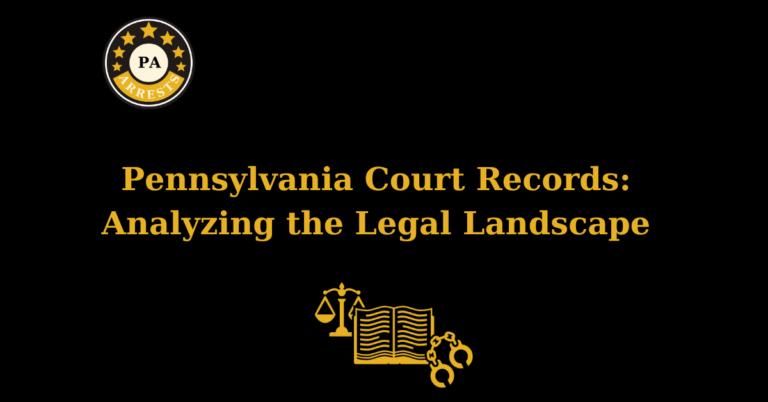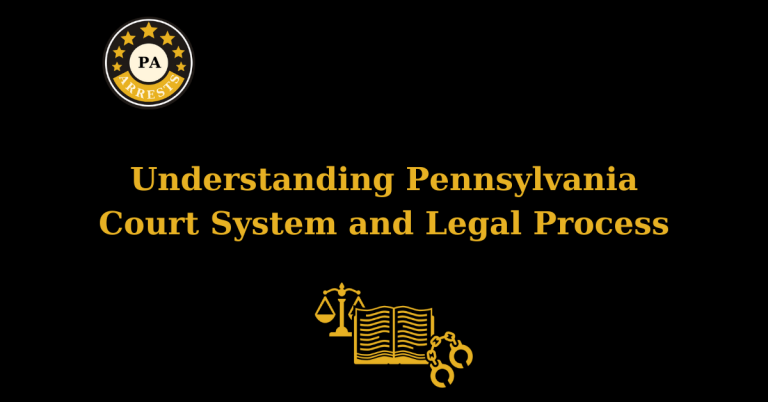Police Officer Training in Pennsylvania: From Recruit to Pro

Welcome to an in-depth exploration of police officer training in Pennsylvania. In this comprehensive guide, we will delve into the rigorous process that aspiring law enforcement officers undergo to become professionals in their field. From physical fitness tests to classroom instruction, we will uncover the various aspects that contribute to mastering police officer training in the Keystone State.
Our mission is to provide you with a wealth of knowledge and insights into the training program that shapes Pennsylvania’s finest men and women in blue. Whether you are a prospective police officer, a curious citizen, or simply interested in law enforcement, this guide aims to be a valuable resource for you.
Physical Fitness Requirements
One of the crucial aspects of police officer training in Pennsylvania is the physical fitness requirements that candidates must meet. The physically demanding nature of the job necessitates that individuals possess a high level of physical fitness and stamina. In this section, we will explore the specific fitness tests that aspiring officers must pass to ensure they are physically capable of fulfilling their duties.
Classroom Instruction and Legal Studies
Mastering the knowledge and understanding of laws and legal procedures is a key component of police officer training in Pennsylvania. In this section, we will delve into the comprehensive classroom instruction that candidates undergo, covering a wide range of topics including criminal law, constitutional law, and community policing. The training ensures that officers are well-versed in the legal aspects of their role and can make informed decisions while upholding justice.
Firearms Training and Tactical Skills
Proficiency in the use of firearms and tactical skills is vital for police officers in Pennsylvania. In this section, we will explore the rigorous firearms training that candidates undergo, including marksmanship, weapon handling, and situational awareness. Additionally, we will delve into the tactical skills training, which equips officers with the necessary skills to handle high-stress situations and make split-second decisions while ensuring the safety of themselves and others.
Community Engagement and Diversity Training
Building strong relationships with the community and understanding the importance of diversity is crucial for police officers in Pennsylvania. In this section, we will discuss the community engagement initiatives that are part of the training program, including outreach programs and community policing strategies. We will also explore the diversity training that aims to foster understanding and inclusivity among officers, enabling them to effectively serve diverse communities in the state.
Practical Training and Field Experience
Putting theoretical knowledge into practice is a vital part of police officer training in Pennsylvania. In this section, we will examine the practical training and field experience that candidates undergo, including ride-alongs with experienced officers, simulated scenarios, and hands-on training in various law enforcement techniques. This section will provide insights into how aspiring officers gain real-world experience and develop the skills necessary to handle the challenges they may encounter on duty.
Maintaining Professionalism and Ethical Standards
Upholding professionalism and ethical standards is of utmost importance for police officers in Pennsylvania. In this section, we will explore the training programs and initiatives aimed at instilling a strong sense of ethics and integrity in aspiring officers. From ethics courses to ongoing evaluations, Pennsylvania’s police officer training ensures that officers adhere to the highest standards of professionalism and conduct throughout their careers.
FAQs
What is the duration of the police officer training program in Pennsylvania?
The duration of the police officer training program in Pennsylvania typically ranges from 18 to 25 weeks, depending on the specific academy and curriculum. Training covers essential skills, legal procedures, and practical exercises to prepare officers for their responsibilities in law enforcement.
What are the eligibility requirements to enroll in the police officer training program?
Eligibility for the police officer training program typically includes a minimum age, educational requirements, and citizenship status. Applicants often need to pass background checks, physical fitness tests, and meet specific health standards. Additionally, some programs may require completion of specific coursework or training prerequisites.
Are there any physical fitness requirements for the police officer training program?
Yes, physical fitness requirements are typically mandatory for police officer training programs. Candidates must meet specific standards to ensure they can handle the physical demands of law enforcement duties effectively. The requirements often include assessments of strength, endurance, and agility.
What topics are covered in the police officer training program?
Police officer training programs cover topics such as law enforcement tactics, firearms training, legal procedures, and community relations. Additionally, they address crisis intervention, ethics, and physical fitness to ensure comprehensive preparation for the demands of the role. Practical skills, communication, and cultural sensitivity are also emphasized.
Is there a written exam at the end of the police officer training program?
Yes, police officer training programs often include a written exam at the end to assess knowledge retention and comprehension of essential law enforcement principles. Successful completion of this exam is a crucial step for individuals aspiring to become certified police officers.
Does completing the police officer training program guarantee a job as a police officer in Pennsylvania?
Completing the police officer training program does not guarantee a job as a police officer in Pennsylvania. However, it is a necessary step towards becoming eligible to apply for law enforcement positions in the state.






